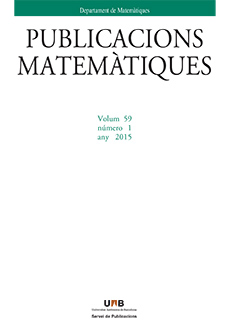Abstract
The inner automorphisms of a group $G$ can be characterized within the category of groups without reference to group elements: they are precisely those automorphisms of $G$ that can be extended, in a functorial manner, to all groups $H$ given with homomorphisms $G\to H.$ (Precise statement in $\S$1.) The group of such extended systems of automorphisms, unlike the group of inner automorphisms of $G$ itself, is always isomorphic to $G.$ A similar characterization holds for inner automorphisms of an associative algebra $R$ over a field $K;$ here the group of functorial systems of automorphisms is isomorphic to the group of units of $R$ modulo the units of $K.$
If one looks at the above functorial extendibility property for endomorphisms, rather than just automorphisms, then in the group case, the only additional example is the trivial endomorphism; but in the $K$-algebra case, a construction unfamiliar to ring theorists, but known to functional analysts, also arises.
Systems of endomorphisms with the same functoriality property are examined in some other categories; other uses of the phrase "inner endomorphism'' in the literature, some overlapping the one introduced here, are noted; the concept of an inner derivation of an associative or Lie algebra is looked at from the same point of view, and the dual concept of a "co-inner'' endomorphism is briefly examined. Several open questions are noted.
Citation
George M. Bergman. "An inner automorphism is only an inner automorphism, but an inner endomorphism can be something strange." Publ. Mat. 56 (1) 91 - 126, 2012.
Information





